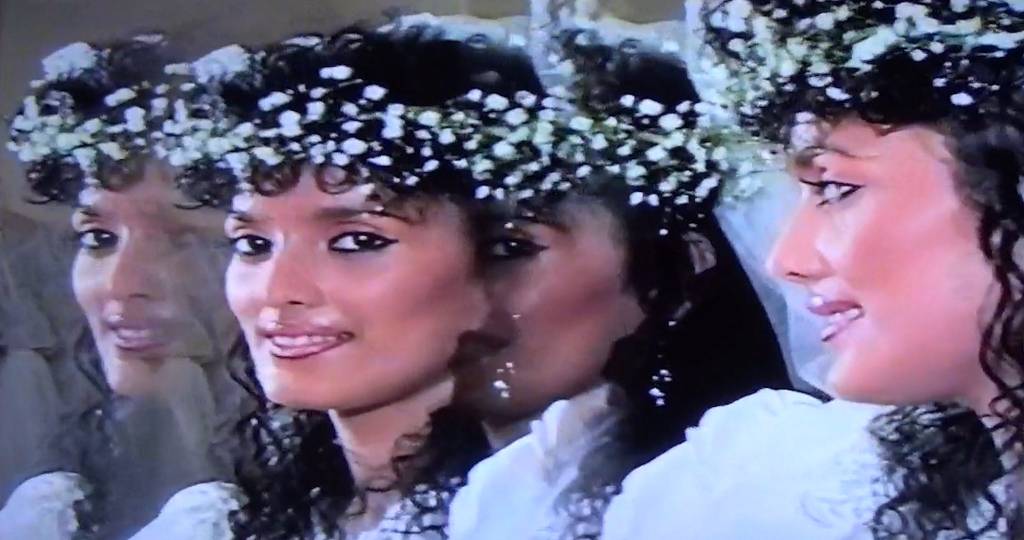Fibrous flesh tearing, metallic dissonance: I was reading the captioning provided in The Taste of Mango, a feature film by British-Sri Lankan director Chloe Abrahams which played at the Toronto Reel Asian International Film Festival in early November. I wanted to know more than just what I could see and hear, and the captions helped with that. Words help, and they make another appearance in epistolary form, but there’s inevitably more I think I don’t understand.
The Taste of Mango is a beautifully made film, but it resists the saccharinity of beauty, mediates on its usefulness in bringing about a picture. Metaphors abound almost effortlessly: the revolutions of a wheel and its spokes on hard pavement, the slicing of mango near the pit. But there’s the labour of love and care that settles on the mantle—the sound of a voice in various stages of admiration and lament. The speed of the film moves like the body of a whale, taking you to the depths of the ocean, and back up again for a moment. There’s the suggestion of tears, and then the sea glistening with sun-tipped waves. There’s the evocation of mangoes, and bright yellow on the backs of nails.
In one generation (Chloe, her mother Rozana and Rozana’s mother Jean) we see a line drawn through by sexual violence, an unerasable line that almost becomes a fissure but instead becomes, like Braille, embossed and unintelligible except to those who know how to read it. Abrahams has made an intricate, grounding film about her longing for closure and resolution in Rozana and Jean’s relationship, as they invite Jean to their home in London, UK, where they celebrate a birthday, and with Chloe visiting her in Colombo, Sri Lanka. Home videos of their present lives, Rozana’s wedding years ago, and the life that she lives, encircle the revelations of years past.

The Taste of Mango began as a short film. As the story expanded to not only include the relationship between the director and her grandmother but Abrahams’s own story in relation to her maternal lineage, the piece began to take hold in a much different way, through the work of thoughtful edits and a camcorder whose adroit use and recognizable drone runs through the piece. The result is a documentary with imagistic, experimental elements that elevate its vantage from being purely observational to being transformative, moving you through the verse of country music, light-hearted and ironic frames, happy and sad all at once.

Leave a comment